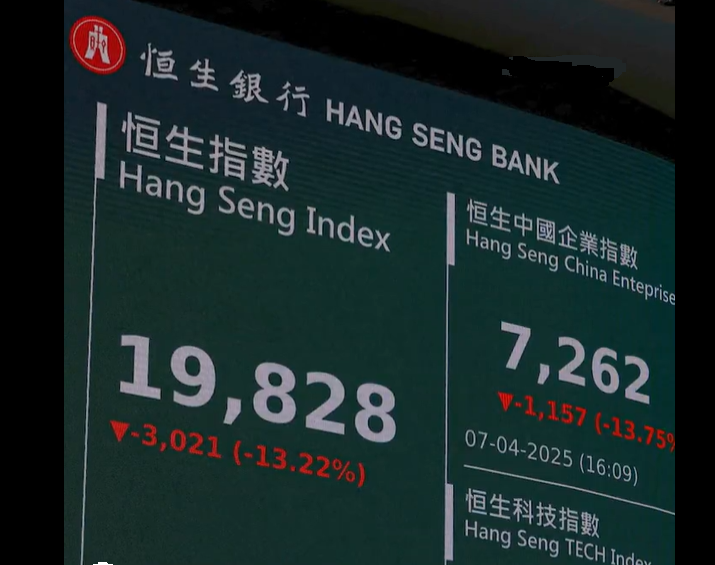Global hubs Hong Kong and Singapore impacted by fears and stock market crashes
The Hang Seng index is down by 13.22 per cent, its sharpest drop since 1997, in the wake of the trade war triggered by tariffs. Recession fears are also sinking Singaporean real estate companies. Massive interventions by a Chinese sovereign wealth fund contains losses on the Shanghai stock exchange.
Hong Kong (AsiaNews/Agencies) – Today was the worst day since 1997, the year of the Asian financial crisis. The Hong Kong’s Hang Seng recorded a 13.22 per cent decline, which alone is enough to explain the extent of what happened in Asian financial markets in the wake of the trade war triggered by the tariffs announced by Donald Trump and China’s consequent response.
Among the companies that saw the biggest losses was e-commerce giant Alibaba, which lost 18 per cent, with rival JD.com not far behind at 15.5 per cent. The company that runs the local stock exchange, Hong Kong Exchanges and Clearing, dropped by more than 14 per cent.
The Shanghai Composite, the most important index of mainland Chinese markets, limited its decline to 7.34 per cent, but only because China's sovereign wealth fund Central Huijin Investment intervened in support of domestic stocks, saying it “will continue to increase its holdings in the future to resolutely maintain the smooth operation of the capital market.”
Tokyo shares also plunged by 7.88 per cent, with the Nikkei index suffering the third-largest drop in its history. Among the Japanese companies that suffered the biggest losses were clothing chain Uniqlo, which gave up 7.2 per cent, and Tokyo Electron, a semiconductor-related company, which lost 10 per cent.
The performance of the Singapore stock exchange is another indicator of how much the storm is indiscriminately affecting Asia; the 10 per cent threshold on duties imposed on the city state by Trump was not enough to spare the city-state, a key trade hub in the continent.
Here too, trading closed with a heavy 8.5 per cent loss, not far from the -8.9 per cent recorded during the global financial crisis of 2008. It is also interesting to note that construction and maritime transport are among the most penalised stocks.
Shares of construction company OKP Holdings were down by almost 20 per cent to 51 cents, after hitting their highest level in 10 years on 3 April, at 68 cents, thanks to a construction boom in Singapore.
A similar fate befell Centurion Corporation, a company that provides accommodation for foreign workers in Singapore.
Malaysian shipyard company Nam Cheong slumped about 18 per cent, while ship operators and charterers, such as Mermaid Maritime and Marco Polo Marine, also suffered sharp declines.
All this is a sign of the fear that the trade war could trigger a recession in the entire region.







.png)










